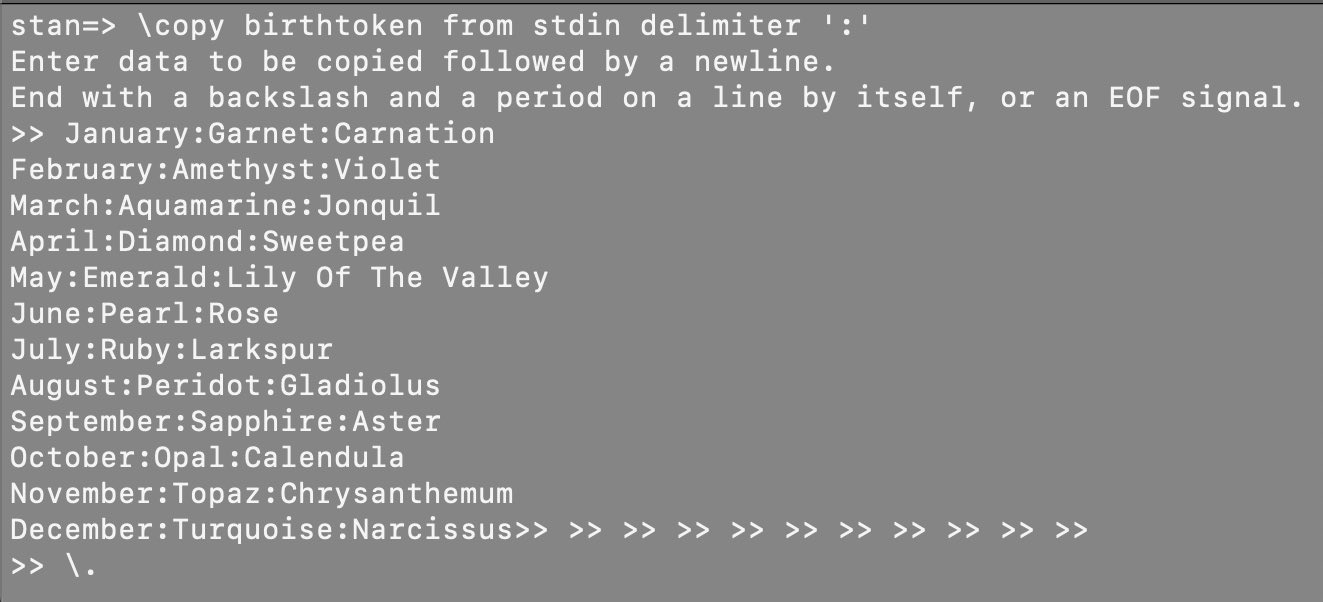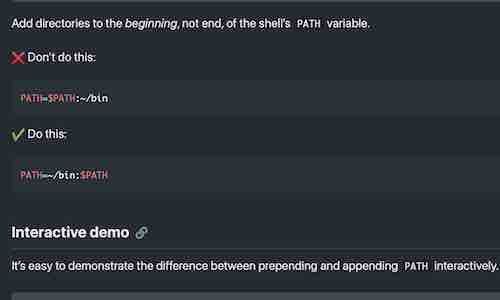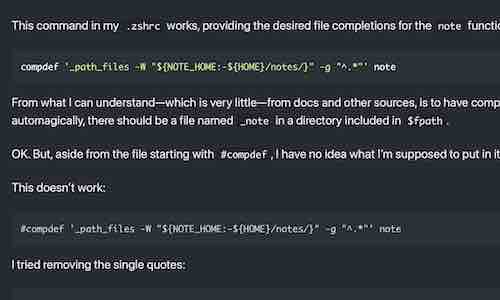Using stdin is an easy and convenient way to enter or paste multiple lines of data in psql, something I wish I’d learned much earlier.
I’ll use this data (/usr/share/misc/birthtokens on macOS) to demonstrate:
# Birthday : Birth Stone : Birth Flower
# @(#)birthtoken 8.1 (Berkeley) 6/8/93
January:Garnet:Carnation
February:Amethyst:Violet
March:Aquamarine:Jonquil
April:Diamond:Sweetpea
May:Emerald:Lily Of The Valley
June:Pearl:Rose
July:Ruby:Larkspur
August:Peridot:Gladiolus
September:Sapphire:Aster
October:Opal:Calendula
November:Topaz:Chrysanthemum
December:Turquoise:Narcissus
In psql, create an appropriate schema and table:
create schema paste_demo;
set search_path to paste_demo;
create table birthtoken(month text, stone text, flower text);
Use the \copy command, specifying the delimiter, with stdin as the source:
\copy birthtoken from stdin delimiter ':'
You should see this prompt:
Enter data to be copied followed by a newline.
End with a backslash and a period on a line by itself, or an EOF signal.
>>
Copy and paste the data from above (excluding the lines starting with “#”) and press enter. Then enter backslash followed by a period.
Here’s what it looked like when I did so:

The accumulated prompts (>>) might look weird, but it’s normal. As you can verify, the data is now in the table:
table birthtoken;
month │ stone │ flower
───────────┼────────────┼────────────────────
January │ Garnet │ Carnation
February │ Amethyst │ Violet
March │ Aquamarine │ Jonquil
April │ Diamond │ Sweetpea
May │ Emerald │ Lily Of The Valley
June │ Pearl │ Rose
July │ Ruby │ Larkspur
August │ Peridot │ Gladiolus
September │ Sapphire │ Aster
October │ Opal │ Calendula
November │ Topaz │ Chrysanthemum
December │ Turquoise │ Narcissus
(12 rows)




